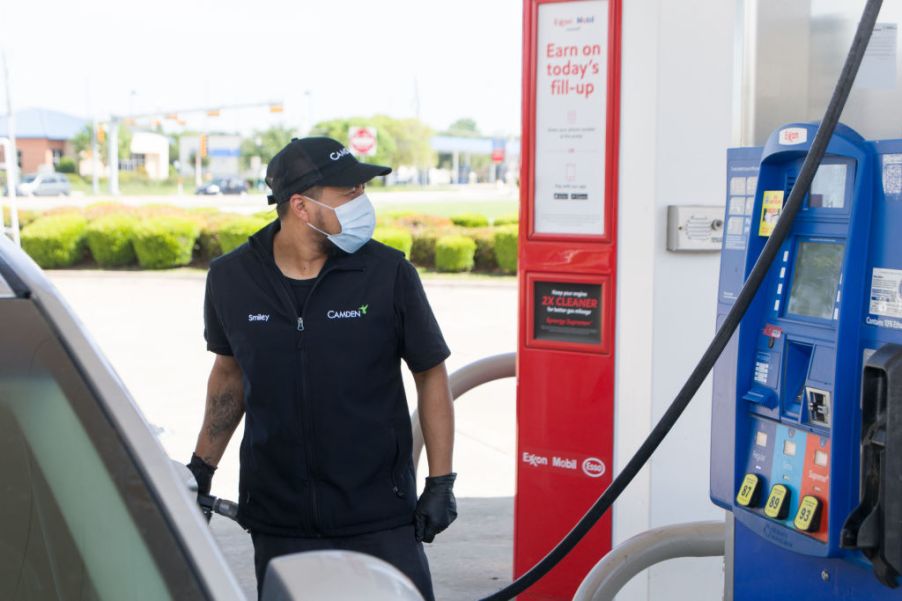
What Negative Oil Prices Mean For Your Wallet
The entire automotive world is feeling the effects of the COVID-19 pandemic. Automakers like Ford and Toyota are making face shields and GM’s building ventilators. But with no one understandably buying cars, these companies are also feeling economic pressure. And fewer people driving means more than just fewer emissions. It also means gas and oil prices have dropped significantly. So much so, that recently the price of an oil barrel dipped below $0 for the first time ever. But how can that be, and what does it mean for your finances? We’ll answer both questions below.
Why and how did oil prices go negative?
Firstly, Motor1 explains, it’s important to note that a negative oil price doesn’t mean the oil is worthless. As Autoblog explains, the price of crude oil is mainly determined through pumping output and futures contracts. Basically, at the moment, there’s so much oil that buyers can’t put it anywhere. Thus, the contract values have dropped to negative, even though the delivered price of oil is still positive.
But if oil prices are literally below $0, why are the oil companies still pumping it out? To be fair, Autoblog reports, the suppliers are beginning to cut way back on production. However, oil companies, especially those that send oil through pipelines, can’t fully shut off the flow.
As Jonathan Waldman explains in the book Rust: The Longest War, pipelines are designed for a specific oil output. If the flow drops below a certain volume, the oil starts to stagnate, especially in colder climates. When that happens, wax and other deposits build up in the pipeline, and rust can also form.
Think of it like a blood clot in an artery: if there’s too much wax, the flow stops completely. Or, if the pressure builds up, the pipe could fail, and lead to an oil spill. That’s why oil companies regularly clean their pipelines, and why there needs to be a bare minimum of oil flowing.
But if, as the BBC reports, oil producers are literally paying people to take the oil off their hands, does that mean you’ll get paid to get gas? Not exactly.
Why negative oil prices don’t mean negative gas prices

Firstly, as CNN explains, crude oil and gasoline prices aren’t exactly linked. Although pump prices have dropped, they’re not at $0, and likely won’t ever be. That’s because, not only are gas prices determined by separate contracts, making gasoline takes time and money.
It’s important to note that the reason why you shouldn’t keep gasoline in your tank for long is because gasoline isn’t a specific chemical. Instead, like diesel, gasoline is a mixture of various chemical compounds, which can separate and cause damage to your vehicle if left sitting.
And, like diesel, gasoline comes from refining extracted crude oil. This process requires complex equipment and a lot of energy, not to mention getting the finished product to gas stations. That’s why, even though crude oil prices have gone negative, gasoline prices haven’t. The added production and transportation steps add cost.
In short, although filing up is now easier on your wallet, it isn’t free.
How long will this last?
Even before the COVID-19 pandemic, there were predictions that the rise of EVs and tightening emissions standards would drive ICE vehicle demand down. Thus, oil and gas prices would also decrease. Although, it’s likely battery prices would increase to keep pace with the subsequent demand.
Ultimately, Bloomberg muses, negative crude oil prices will likely continue for some time. As will the low gas prices, TFLCar reports. Even cutting back oil production will probably only help slightly. The situation probably won’t change until the pandemic fully lifts.
Follow more updates from MotorBiscuit on our Facebook page.


